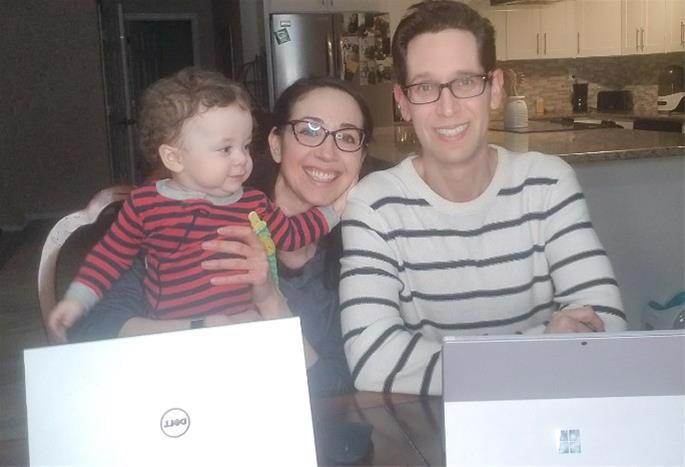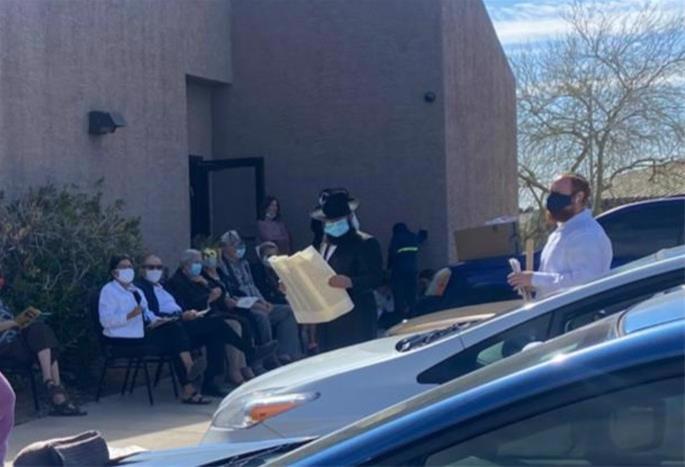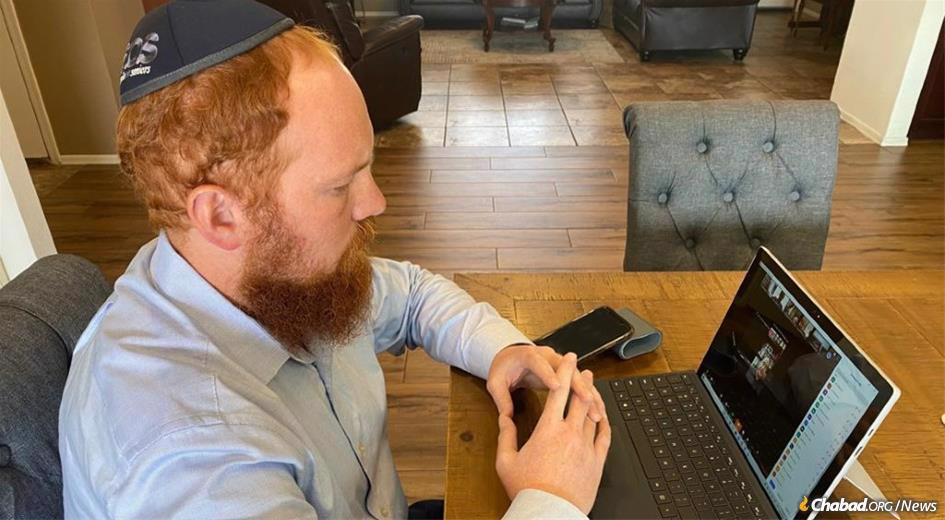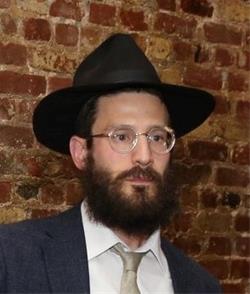Vaccination efforts for Jewish seniors worldwide have taken on a new sense of urgency as Passover approaches. After a year of quarantines that have isolated the elderly in particular, many are eager to be able to finally join close family and friends for the holiday. With the promise of inoculation, the opportunity to do so is within reach, and one organization in Phoenix, Ariz., has made it possible for hundreds to do so.
“The vaccines are a two-shot process, and many seniors have asked us to help them secure second appointments ahead of the holiday so they can spend the Seder with family,” says Rabbi Levi Levertov, who as together with his wife, Chani, directs Chabad of Arizona’s “Smile on Seniors” program in the Phoenix area.
The program began on an ad-hoc basis and grew quickly into an organized effort. “I didn’t really imagine any large-scale effort when I arranged the first vaccination appointment for a senior I knew,” Levertov told Chabad.org. “It was more by chance: I had heard about someone I knew who was struggling to get a vaccine appointment locally. I did a brief search and realized that while in Maricopa County [home to Phoenix] there were indeed no available appointments, the county just next door did have some openings. So, I arranged it for them.”
After realizing just how necessary it was for someone with a little bit of know-how and even more goodwill to step in, Levertov couldn’t help himself from doing the same thing for other people he knew.
“The Rebbe [Rabbi Menachem M. Schneerson, of righteous memory] would often emphasize the importance of our doing everything in our power to ensure that people gather together for the Seder, which at its heart is the communication of the Passover story from parents to their children,” said Levertov.
“With this program,” he emphasized, “we’re working within current safety guidelines to do just that.”

A Timely Offer of Assistance
A large-scale Chabad vaccination program became possible when Lauren Saks of Phoenix heard that vaccines for the coronavirus had finally arrived and were available for people age 75 and over, and she urged her parents to arrange to get vaccinated. It seemed fairly straightforward: log on to the state website, make an account, find a location nearby and sign up for an appointment.
But it turned out that her parents got stuck at the “make an account” stage. Their daughter wound up setting the appointment for them and off they went.
“When I realized how complicated it was for my parents, I figured they weren’t the only ones,” Saks told Chabad.org. “So, I contacted Rabbi Levertov and offered to help him out with anyone else who might need assistance.”
Turning to the rabbi was a wise choice. The Levertovs are in regular contact with hundreds of Jewish retirees, residents of senior homes and others in assisted-living facilities in the sunny desert state with a large population of retirees.
After teaming up with Saks and her husband, Sam, a full-on project was underway.
“I spend as much time as I can on the computer trying to secure appointments for people,” says Saks. “Wherever, whenever, I try to get an appointment, and as I tell those who need it, ‘we’ll get you there, don’t worry.”

Navigating the System
While states across the nation are rushing to roll out the latest coronavirus vaccines, implementation has been a challenge—creating situations such as the one Levertov, Saks and other volunteers are working diligently to navigate. “To put matters in perspective,” explained Levertov, “when the State of Arizona issued the first 80,000 vaccinations, appointments were snatched up in the first two hours. You can understand that for anyone—let alone a senior citizen—it can be extremely challenging to be so diligent and savvy to grab it when it comes.”
And that’s where the volunteers come in. “I log on the Maricopa County Health Care website and search for appointments anywhere,” explained Saks. “If that comes up empty, there are a number of hospital chains I have become familiar with that I search through. I frequently check back, as there are often cancellations, and it’s just a matter of time until those are taken, too.”
Initially, the grassroots efforts were quite basic and informal, with Levertov, Saks, her husband and a few others fielding calls on their cell phones and driving people to their appointments. When a local reporter for a well-read publication got wind of their efforts and let everyone know, “my phone really blew up,” reported Saks. Soon, it became impossible to operate at such informal levels, so Levertov created an intake form on his website and brought on more volunteers.
“To date, we have arranged vaccination appointments for hundreds of seniors,” said Levertov. “It’s really heartwarming to see how many people have stepped up and volunteered—some of whom we don’t even know.”
To further help the senior community along the path of reopening, Smile on Seniors has arranged for a psychologist to come and address “how to move forward.”
“With G‑d’s help, this Passover will look very different than last year’s—for the seniors in Arizona and for the entire global community,” said Levertov.









Join the Discussion